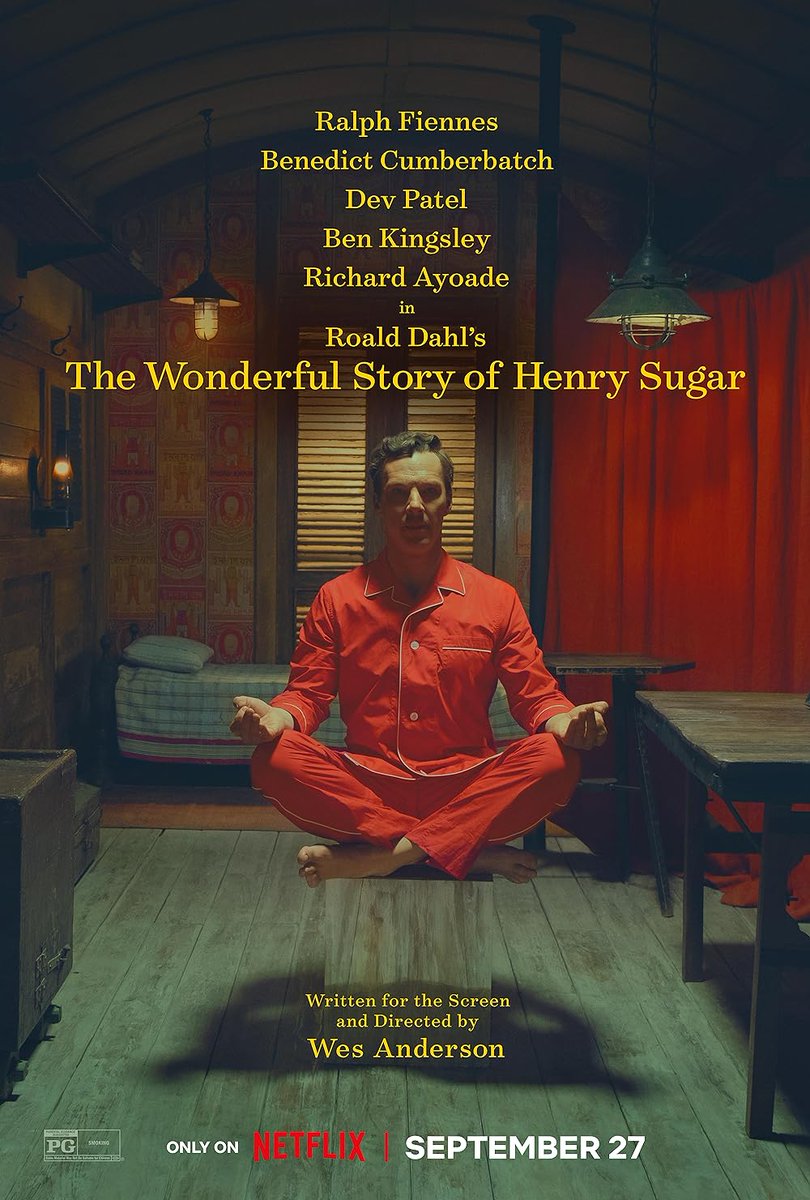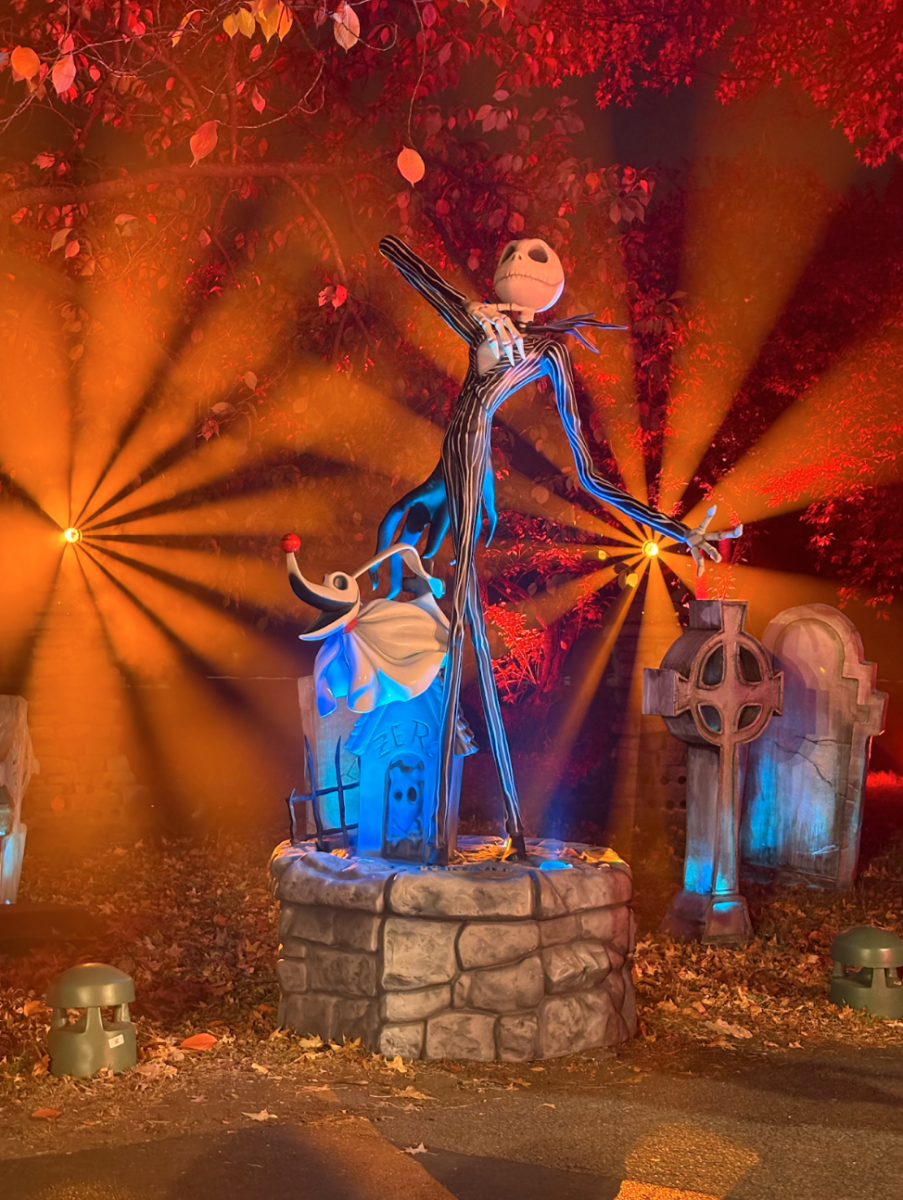While famous for some of the most celebrated children’s books in literary history, Roald Dahl is less well-known today for the litany of short stories he produced throughout his career. Alternatively, extremely witty and emotive, Dahl combined fantastical elements with mundane experiences to craft the same literary masterpieces that made him so beloved among children for a more mature audience. Most of these stories, however, have been forgotten, eclipsed by Dahl’s much more famous works.
Director Wes Anderson has brought some of these stories back into the public eye, however, with his collection of short films based on four of Dahl’s short stories. All four films premiered on Netflix over the past month and provide an entertaining way to spend an autumn afternoon.
The longest story in the collection, “The Incredible Story of Henry Sugar,” recounts the tale of bored English playboy Henry Sugar (Benedict Cumberbatch), who stumbles across an incredible secret that he decides to use to enrich his fortune.
“The Swan” tells the story of Peter Watson (Asa Jennings), who is viciously tormented by two bullies. Of the four, this story is certainly the most disturbing, and at points, is difficult to watch.
“Poison” recounts the story of a man (Cumberbatch) on whom a poisonous snake has fallen asleep, preventing him from moving in fear that it will awaken the reptile, leading to his demise. The film follows the efforts of his friend and a doctor to remove the serpent without killing the man. Even though the film is only about 17 minutes long, the viewer is on the edge of their seat, feeling the fear and tension of the moment.
“The Ratcatcher” follows a man exterminating a rat-infested building, and his explanations of the unusual methods with which he carries out his tasks.
Each of the segments is classic Anderson — charming and quirky in a way that only he can be. The stories are unique in that the characters narrate events as they occur, quoting directly from the short stories on which they are based. Rather than pulling the viewer out of the tale, however, it enriches the story through the use of Dahl’s prose, making the reader feel like they are watching a live play right in front of them.
Rather than the increasingly familiar three-hour Hollywood blockbuster, each of the films is a quick watch. “Henry Sugar” is the longest of the four films, at only 41 minutes. The other three clock in at less than 20. If you decided to watch all four together, it would constitute a full-length movie, but the stories are completely separate from one another, and there’s no specific order to watch them in or any need to watch them all at once.
Though wildly different in terms of plot, all four stories share certain common qualities, contributed by both the director and the author on whose stories the shorts are based. Each tale has moments of comedy drawn from both Dahl’s witty writing and the amusing way Anderson shoots the moments. Interspaced throughout the films, there are cuts back to Dahl — himself a character in his own stories, played by Ralph Fiennes — sitting in his cottage, narrating the tales he’s in the middle of writing.
Most of the stories (exempting “Henry Sugar”) have at least some disturbing elements, and there are often tense scenes that push the viewer to the edge of their seat. And the endings frequently leave the viewer sitting there, deep in thought — at the end of each film, my roommate and I sat in silence, processing everything we had just viewed.
The only critique I can level at the films is that sometimes they feel rather rushed — the characters tend to speak very quickly, and while this might be a directorial decision, it sometimes makes the stories feel sped up in places they shouldn’t be sped up. The relative quickness of the narration, however, makes the slow moments feel more dramatic, so perhaps the pacing does more for the story than it seems at first glance.
If you’re an Anderson fan, this series is a must-watch (though you probably knew that before you read my review. In fact, you’ve probably already seen these films). For those who have never ventured into Anderson’s domain, I absolutely recommend giving these films a watch. Most of them are shorter than your average episode of television, making it perfect to fit into a busy day when you don’t have time to watch a full movie. Despite their brevity, however, each film manages to pack in an entertaining story and an emotional punch, a testament to the talent of one of the most creative directors in cinema history.








































































































































































































